This week’s best new albums
OM Unit head up our list of the best albums this week, with everyone from FSOL to Ghetts also in the running.
Album of the week
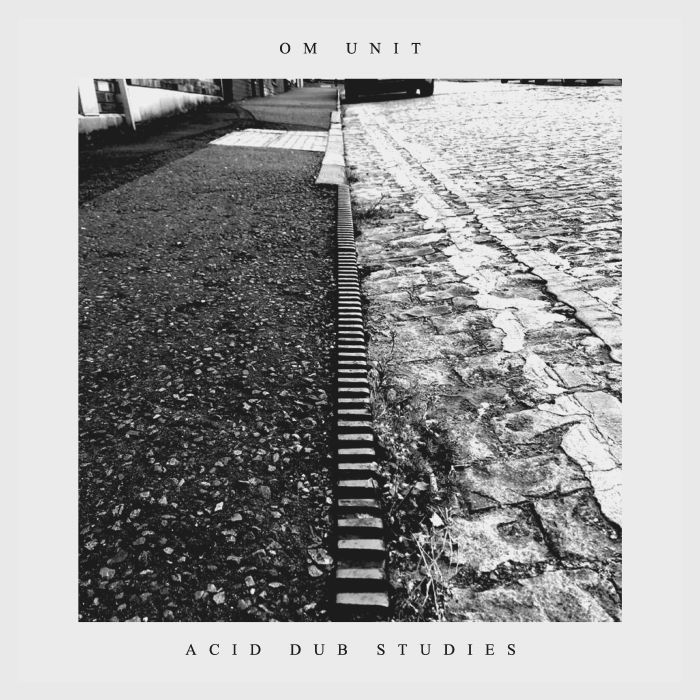
OM Unit – Acid Dub Studies (OM Unit)
The stark sound of the TB-303 has a funny relationship with dub. After the mis-appropriated, once-budget synth found its calling thanks to Phuture, it went on a rampage that saw it bent to some of the meanest club tracks. The sweeping filter resonance lent a bite to the sound which favoured aggression over ambience. Acid became something of a by-word for the most intense sounds – the kind of gear you’d find Miss Djax hammering onto a Djax-Up Beats record, or something Aphex would be gleefully mangling in his lab. A long way from the coquettish bubbling A Guy Called Gerald conjoured up in ‘Voodoo Ray’, acid was more widely considered the sound of skulls being scraped out and a breakneck charge towards dungeon rave annihilation. That’s a sound which doesn’t pause to give thought to the space and pace of dub, even if Jamaica’s skeletal sonic export is intrinsic to the structure of all dance music.
The 303 has of course been used in much more varied ways than just earbleeding bangers though – few synths have received as much devoted attention as artists seek to explore every dimension of its very finite parameters. And indeed, over time, there have been considerations about what happens when you plunge one into the echo chamber. Look no further than Andreas Tilliander’s TM404 project, and the Acidub album he released in 2016. But it still feels like an area of 303-wielding ripe for exploration, when that boisterous box gets pointed towards more melancholic, reflective purposes. Jim Coles is taking up the mantle on his new album as Om Unit, pausing on the jungle, footwork and other realms he’s been working in to self-release an encapsulated collection of his own Acid Dub Studies.
He’s set out that such totems as Adrian Sherwood, Basic Channel and Andrew Weatherall guided his approach in the studio, and that figures throughout. There’s a live, desk-riding attitude to the tracks as the FX splash in and out of the mix. But true to the influences mentioned, Coles seems more focused on pursuing his own mode of expression. It’s hard for a sound as ubiquitous as the 303 not to trigger notes of familiarity, but even if the higher frequency warbles occasionally call to mind some of the sadder electronica of DMX Krew or Ceephax, there’s enough other stuff going on in the record to make the connection a tenuous one.
Vitally, it’s when used as a low-end rhythmic device the 303 really makes sense in the dub context, taking on the instructive pulse you’d expect in a steppers track but with all the snarl and sass that makes the 303 so great at bass. True to the dub part, Coles embraces reggae structures plenty on the record. ‘Dissolved’ rides an offbeat chop with a whiff of Smith n’ Mighty in the air. On ‘Ghosts’, he works the 303 so fluidly, it seems to be wholly merged and unified with the spring reverb pings and pops.
But there are also more surprising touchstones lurking in the wings too. In the opening strains of ‘Bristol Theme’ it almost sounds like we’re about to slip into a particularly heavy-hearted street soul burner, while the choral synth voices haunting ‘Circled’ bring to mind the eerie romanticism of synth-pop. The easy 4/4 throb and simmered down mood of ‘Rolling Stock’ feels like it could slip into the realm of 90s chill-out without being flagged.
Albums such as Acid Dub Studies work so well because they take a simple conceptual framework and allow the artist to relax into them. It helps when it’s an approach that hasn’t been done to death, of course, but rather than attempting to deliver some kind of earth-shattering revelations, the great achievement is an honest and inviting piece of work you can happily spend the day swimming in, and isn’t that what the best dub should be like?
OW
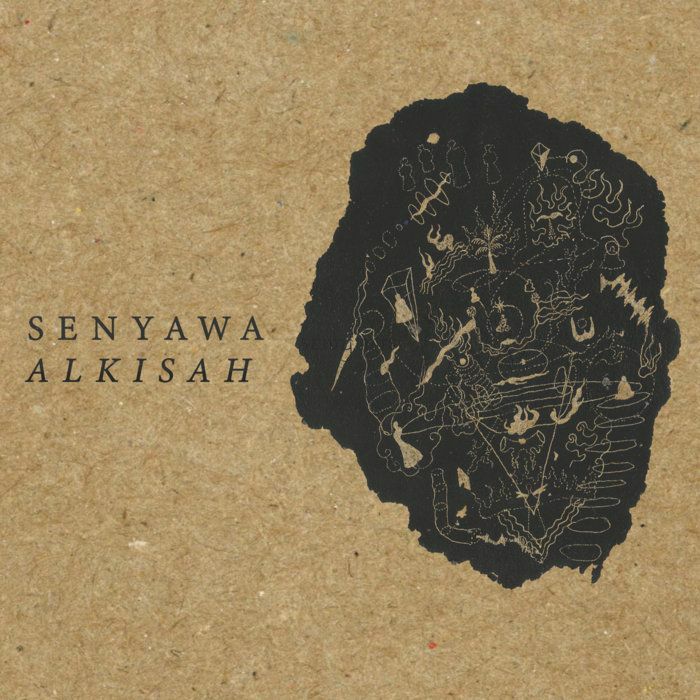
Senyawa – Alkisah (Les Albums Claus)
The visceral impact of Senyawa is as profound on record as on stage. The Indonesian duo hail from Jogjakarta, an ancient city in Central Java, and they have a method and sound like no one else in the world. Drawing heavily on their cultural heritage and fortifying their music with the rougher end of experimental music practice, you’d be forgiven for struggling to comprehend they manage to make all this noise as a two-man band. Wukir Suryadi plays a handcrafted bamboo instrument with strings and guitar pick ups running through effects pedals, from which he elicits looped melodic phrases, grungy riffs and clangourous percussion. To witness him play and generate these sounds in real time is genuinely astounding. Rully Shabara draws on techniques such as throat singing to layer up three-dimensional vocal parts, and between them these two men create a monolithic music.
In the past Senyawa have collaborated with the likes of Sunn O)))’s Stephen O’Malley, and indeed you could benchmark their sound somewhere in the region of doom metal. There’s a frequent use of sustained, low-frequency distortion from Suryadi’s guitar, while elsewhere he’ll be wailing further up the bamboo shoot and ringing out into delay, but there’s a more complex spiritual dimension to the sound of Senyawa beyond outright doom. That is of course defined in no small part by Shabara’s hefty voice, which more than stands up to the noise which accompanies it.
The intensity rarely lets up throughout Alkisah, with the calmer, folky ruminations of ‘Kabau’ marking a midpoint refresher. ‘Fasih’ also dials back on the thunderous rhythms and settles into a more meditative, experimental groove before starting to meander towards an intense, riff-laden climax. One of the undoubted highlights, ‘Alkisah I’ pivots around a nagging, repeated phrase which provides a bedrock for cavernous blasts which seem locked in a mortal duel with Shabara’s many groans, shrieks, proclamations and utterations.
OW

The Egyptian Lover – 1986 (Egyptian Empire US)
For all the chat about electro in the modern age, it’s worth reflecting on the journey the genre has been on. It’s actually quite remarkable how much the original principles of the sound have maintained over time. That’s probably equally down to the staggering future-minded vision of the originators and the faithful retro devotion to the tools of the trade. Somehow, the 808 is still king and bleeps and bass over a funky-ass beat will prevail. It also probably helps that we have the one and only Egyptian Lover as a benchmark – the electro preacher for all time, from the early 80s up to the present day.
Greg Broussard has been on productive form recently, returning to the studio with vigour for a series of albums explicitly exploring the sound of the era he came up in. Back in 2015, he dropped 1984, and followed it up in 2018 with 1985. Now The Egyptian Lover is taking us back to 1986, with an album that is going to hit the pleasure centre for anyone who loves that old-skool sound. There’s no great secret or mystery to an album like this, just straight-up beatdowns with plenty of the tongue in cheek humour that’s made Egyptian Lover so beloved since the early days.
If you want the smutty, sleazy jams, ‘Freaky Girl’ and ‘Cinnamon Oil Massage’ have you covered, while the likes of ‘Big Bad Beat’, ‘Monster’ and ‘Get Down’ bring the party pressure. There are more theatrical theme pieces like ‘Cyborg’ and ‘The Internet’, where Broussard gets creative with the vocoder and his infectiously fun angle on storytelling. But one of the undoubted highlights of the album has to be ‘Volcanic’, which amps up the funk with some Prince-like hooks and licks. That track alone will have you bugging out, but you know full well this album is a body rocker, start to finish.
OW

Another Michael – New Music & Big Pop (Run For Cover)
If you turn your head to the right angle and listen closely enough you can just about hear spring coming into earshot with the first introverted chords of ‘New Music’, the aptly-titled opener to this long-awaited debut LP from East Coast US soft guitar lovelies Another Michael.
The track envelops us in a kind of hushed but deeply effecting and emotional crescendo, as easy on the ear and inviting as it is subtly powerful and immediately arresting. There’s an atmosphere of reflection about it, like looking back on memories made without an understanding of how they would one day be recollected, perhaps even appreciated more. Which is fitting, considering this album was made after the band relocated from Albany, New York, to a shared house in Philadelphia, and blood became thicker than anything.
Setting a tone for what follows, these are late night heart-to-hearts, summer day trips to swimming holes, lazy breakfasts and and low-lit meals with your non-biologicals in song form. You can feel the togetherness of frontman and mastermind Michael Doherty, Sebastiano and Alenni Davis, and in turn this makes us feel part of that experience, too.
At times carefree (‘Big Pop’) in others fragile enough to break into a million pieces, we freewheel between country R&B, melodic guitar pop and opiate acoustic, with audible shades of Ben Folds, Ben Bridwell, perhaps even Bon Iver and certainly other male songwriting greats whose names don’t start with B. Tones are blended together, creating something lo-fi yet escapist. A beautiful and deeply personal corner of sound carved out just for this moment, and destined to be treasured. Testament to what’s possible when artists undergo personal and creative growth, we challenge anyone not to feel safer, warmer and happier after they hit play.
MH

Ghetts – Conflict of Interest (Warner)
Since last year Ghetts has gradually been teasing one of the most eagerly awaited grime releases in the UK in years: Conflict of Interest – expected 19th February. From July 2020 when he made ‘Mozambique’ available, an impressive collaboration with the Birmingham rapper Jaykae and South-African artist Moonchild Sanelly, the grime main-stay has gone on to release four other singles; ‘IC3’ with Skepta, ‘Proud Family’, ‘Skengman’ with Stormzy, and ‘No Mercy’ with Pa Salieu and BackRoad Gee. The wide-reaching collaborations of the matured Ghetts’ musical inclinations make for some of the most exciting grime tracks you can hear right now. ‘No Mercy’, the album’s most recent offering, platforms two rising stars on an explosive modern grime classic full of bass, hype and ad-libs. Ghetts’ political sensibilities, and Skepta’s too, are foregrounded too on tracks like ‘IC3’, whose name alone, and its reference to police ethnicity codes, draws public attention to police mistreatment of black and minority ethnic people in the UK. As a lyricist Ghetts continues to be faultless on every track boasting the endlessness of his hard-hitting bars, the unique cadences of his voice – synonymous with the genre, and sophisticated, introspective story-telling with a pen carefully refined over the years.
JC
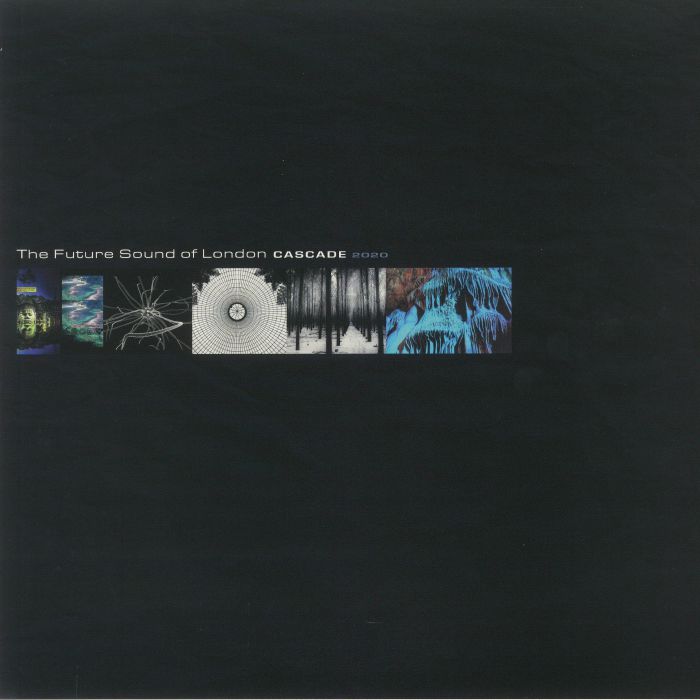
The Future Sound of London – Cascade 2020 (FSOL digital)
Twenty-six years on from this techno classic’s first incarnation as a six-part masterpiece, FSOL have not only re-imagined the composition, but moreover, rebuilt it and if that is not enough have created an LP of 10 new tracks inspired by the original.
The original Cascade EP came off the back of Lifeforms, an album that has become one of their best-known and is quite rightly considered to be an important and cutting-edge classic of the electronic genre.
FSOL were always Kraftwerkian in their outlook and always acknowledged in some way the great German pioneers of the genre. The titular track of this new offering is as mind mending, mesmerizing and of course monumental as the original and clearly shows Messrs Cobain and Dougan of showing no signs of disembarking from the kaleidoscope of creation any time soon.
‘2020’ sounds out of this world and is a serious piece of work and not a quick buck mishmash or rehash. And like the duo’s Teutonic influencers before them, promotes a timelessness born out of what can only be the magic of art just as much as anything by design.
APC
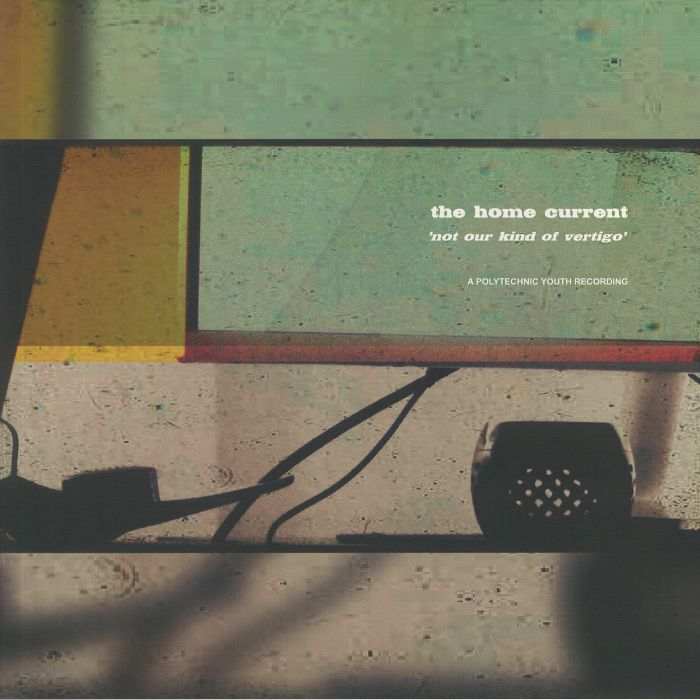
The Home Current – Not Our Kind Of Vertigo (Polytechnic Youth)
Releasing via north London independent, Polytechnic Youth, a label committed to the curation of a versatile and enigmatic bunch of sound sculptors. The Home Current, in terms of electro minimalist, cold-wave and ambient techno shape-shifting occupies just one corner of the label’s very open and collectible set-up and successfully emphasises its raison d’etre of experimentalism and mischievousness.
The Home Current is the Luxembourg based musician and producer Martin Jensen and of his latest offering states that it was put together with the PY label specifically in mind. Opening tracks ‘A Triffid Ritual’ and ‘Way Out Cinnamon’ immediately highlights a contemporary feel but the listener is soon lost in space and time where and one can only recall a dark and cold corner of early 80s central Europe when ‘Bleeding Buildings’ and the LP’s finale and titular track takes hold.
It is a twitchy affair as much as it is a smooth listen but gels nicely between all its reference points which stretch as far away as the dreamy soundscapes of Vangelis and back around again to the close-up hardness of Throbbing Gristle.
“I wanted to create something immediate, sparse and functional” Jenson says about this collection. Indeed, here we have 8 icy slices of deep and immersive cold wave, and with a limited run of only 300 copies of clear vinyl, he certainly achieves his goal with yet another varied and rare platter.
APC
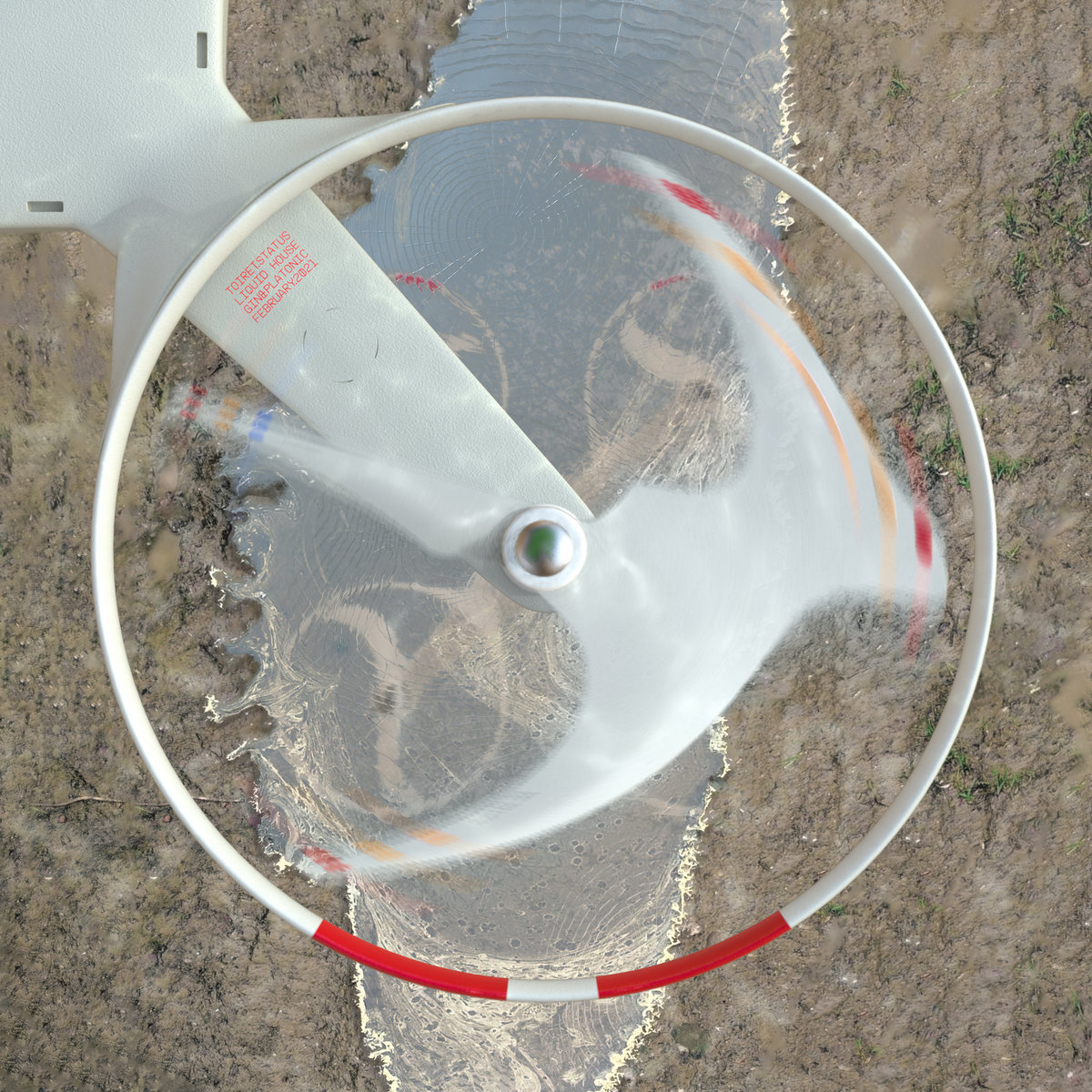
Toiret Status – Liquid House (Gin&Platonic)
Much like how sewage likes to merge and coagulate together, this is largely a collaborative remix and feature-oriented album. Polish deconstructionist ehh hahah, for example, lends foley-trap production to the second track ‘#88’, with drainage slop-abouts replacing snares. It commits to an ear splitting juke beat, like the advanced crud-pro. It’s not every day that you hear an album likened to a living, breathing, excreting house. But that’s exactly the case with ‘Liquid House’, the latest album by Isamu Yorichika, aka. Toiret Status. On this release, the Japanese producer imagines a sonic ‘architecture’ or ‘home’ defined not by its utility, or aesthetic properties, but rather its pure ability to manage and circulate food and produce fecal waste.
The layperson’s reaction to such a novel and out-there sonic challenge might be ‘pooey’, but to Yorichika, that is exactly the point. The result is a stuttering, gluttonous hybrid electronic album, replete with the sounds of toilets flushing, digestive undulations, and vocal samples swirling around sonic drainpipes. At the same time, it blends footwork, techno and jersey club in a swirling, slapdash approach, helped along by tongue-in-cheek contributions from fellow artists.
cessing machinery heard behind the house’s walls. Bubble-tea future bass is given a thinly twee, robotic interpretation on ‘Reclosable Tapioca Chrome’, featuring Cat Psalm. It has all manner of sounds, including the glooping of liquid starch, the tinkling of cutlery, and the squawk of what sounds like a cuckoo clock. It’s a madhouse.
In fact, house music – a great choice of genre to shit on, given the album’s preposterous context – is given a babyish, hall-of-mirrors run for its money on ‘#88’. On the track, which we join weird trap enigma Crimewave on a squeaky-clean odyssey through the liquid home’s drainage system. Taipei-via-Berlin experimentalist Sabiwa provides a gritty harakiri on her remix of ‘#103’, it sounding like a repurposing of fecal matter into metal. Weird chug morphs into weightless hardcore on hmurd’s remix of ‘Liquid House’, like a musical non-sequitur. It’s a beautifully aimless ending to an album which is as efficient at managing human effluvia as it is at going wild with sound. All in all, it’s far from shitty.
JIJ
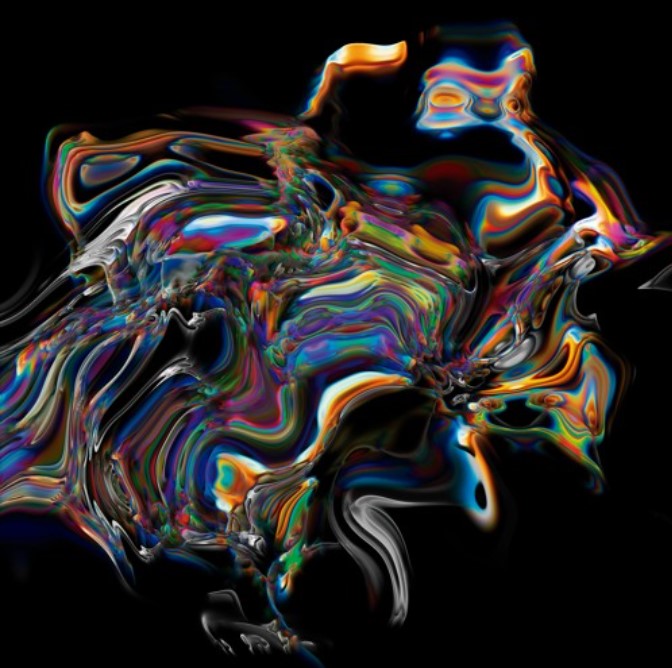
Qoqeqa – Axuxa (Kebrada)
Kebrada – the label headed up by Peruvian-electronic duo Dengue Dengue Dengue! – has, until now, only put out its ‘Discos en 3/Cuartos’ compilation releases, with contributions by the likes of DJ Python, Nick Leon and Debit. However, it now sees Daniel Valle Riestra, aka. QOQEQA, step up to the plate. Far from succumbing to the pressure of being the label’s first solo artist, he bursts into the fore with ‘AXUXA’, his debut album, which explores the liminal boundaries between Afro / Latinx syncope and minimal bass music.
With QOQEQA already a key figure in the emerging South American scene, the album is a reflection of the artist’s Afro-Peruvian and Andean roots. It’s a cinematic ode to dank, tribal, percussive themes heard in Peruvian music, which is largely centred around dances which depict human behaviours like courtship or war. Opener ‘Ama’ is a beatless, cavernous notturno, evoking the feeling of swooping over an Andean basin in a spacecraft at night. It’s not until the follow-up ‘Kilo’ that we hear any drums, and when we do, they’re minimally spaced-out. QOQEQA has the masterful ability to give off a wonky feel by using tactical silences and slight rhythmic misplacements.
Tunes like ‘Kilo’, alongside ‘Omega’ and ‘888’, are simple but effective, their extra percussion embellishments gleaning an advanced mood out of what would otherwise be a simple half-tempo, 4×4 kick. Charmingly played-in synth flute and guitar, and watery drums, jive and slosh around tracks like ‘Puntea’ and ‘CalaXucla’. That’s before we settle into the album’s loveliest track, ‘Momposina’ – a smooth, offbeat call across the city at night. A minimal, cinematic listening experience for anyone who intuitively feels the gloomy side of Peruvian dance music.
JIJ
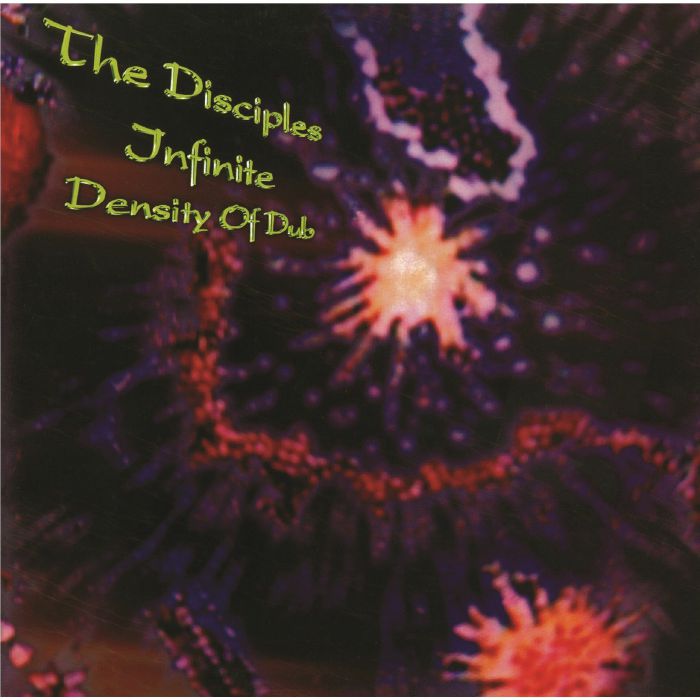
The Disciples – Infinite Density Of Dub (Partial)
Russ Disciple is a vital part of the beating pulse of UK soundsystem music, having set up shop as a producer on the mighty Jah Shaka’s King of the Zulu Tribe label back in 1986. Alongside the likes of Shaka, Iration Steppas and Jah Warrior, his work helped solidify the distinct UK steppers sound which is now so intrinsically woven into the fabric of soundsystem culture at dances and carnivals across the UK. Taking the tradition of roots reggae over dancehall but electrifying the sound, it’s a vibe that instantly speaks of big stacks and heads down dubs, ital food in the corner, ganja in the air. In short, if anything’s going to make you miss a proper soundsystem dance, this reissue on Partial will be it.
Infinite Density Of Dub originally came out in 1997 as one of the early drops on Dubhead, catching The Disciples in the midst of a productive run where you could hardly move for the plates coming out of his Backyard Studio. The composition has a bright and colourful disposition across the whole album, with catchy licks of guitar and melodica lines cavorting through generously slathered FX to really emphasise the psychedelic dimension of his dubbing. Of course the rhythm section is up front, densely packed with percussion on cuts like ‘Realm Of Symbols’ or stripped back to lean on the 4/4 thump of the bass on ‘Temporal Chains’, but what really shines through is the overall richness of the sound. From the highs to the lows, even in the mid 90s The Disciples was a benchmark for astounding clarity as well as absolute bassweight.
OW

BD1982 – Distance Vision (Diskotopia)
Responsible for career-defining releases by Visionist, A Taut Line and Shy One, Tokyo label Diskotopia has had a gem-studded decade. Now label co-founder Brian Durr, aka. BD1982, releases his new, most stylistically complete album to date, reconciling unusual live-recorded instrumentation – including kantele and psaltery – with new age proto-techno chug, wonky ethno-dub, and deconstructed schlub.
Inspired by Colin Wilson’s 1971 book on spirit-magick, ‘The Occult: A History’ – in which the writer aimed to prove the existence of psychic and astral forces through analysing figures like Rasputin, Blake and Gurdjiefff – ‘Distance Vision’ certainly feels like the soundtrack to assembling a homemade pentagram. It sounds nothing like J Dilla, but Durr still opts for his trademark “MPC-centred workflow” somehow wringing a glistening, near-death post-punk feel out of the seminal piece of kit, on tracks like ‘Running’, ‘Anima Migration’ and ‘Glide Level’.
Every track here is twinkly and refractive, but never overly sentimental. The album feels like the death elegy of a wizard-king, Midas-like, made all lethargic and cynical by the meaninglessness of excessive wealth. The moments of more heartfelt emotion occur in the shorter, lighter sections, on tracks like ‘THEW3ST’, where synth arpeggio-delays dance in quantum contrast to live-plucked flourishes. ‘Made of Light’ is a similar track, Durr’s vocals wheezing in and out against flickering echoes and pitched-up banjo scintillations. A glorious album, designed double-take and mystify.
JIJ
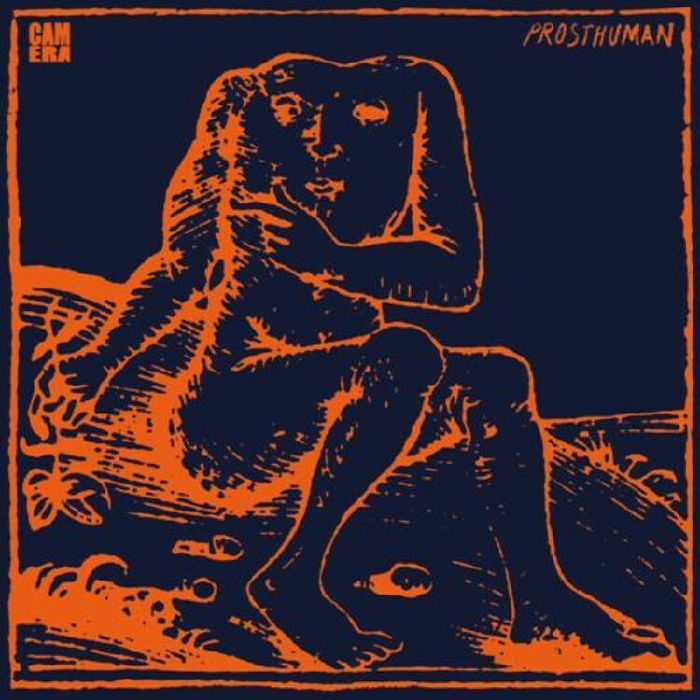
Camera – Prosthuman (Bureau B)
The world’s finest purveyors of psychedelic instrumental rock music, Camera, now have five studio albums as a result of the Prosthuman LP release. The band, which has been going ten years, is known for having a rotating cast of musicians. Michael Drummer (drums) is the sole constant; the Michael Gira of the group, perhaps. Drummer’s new recruits for the album are Tim Schroeder (synths) and Alex Kozmidi (guitar).
Album opener ‘Kartoffelstampf’ is a visceral start — a space rock jam centred around one riff. ‘Alar Alar’ follows with a similarly heavy cyclical groove, this time with streaks of 2-tone and Joe Meek spook rock. Things get more new age-y by the breathtaking third cut, ‘Prosthuman/ Apptime’.
Further down the tracklist, ‘El Ley’ has a bit of Chilean psych sorts Föllakzoid about it, and is the band’s most transcendent slice. It soars with shoegaze-y saturation and pummeling polyrhythms. ‘Schmwarf’ , meanwhile, is a fuzz bass delight with a distinctive synth line and electric guitar exertions; and, something rare for a Camera record: vocals. The vocal style has an iconoclastic alt-goth underworld feel, which is very satisfying.
It’s pleasing that Prosthuman isn’t just a rehash of things fans have become accustomed to expect from Camera. This album will likely see a huge rise in interest in the band, who are truly among the best psychedelic rock bands to ever grace this planet.
CT
This week’s reviewers: Martin Hewitt, Oli Warwick, Jude Iago James, AP Childs, Cai Trefor, Josh Clark